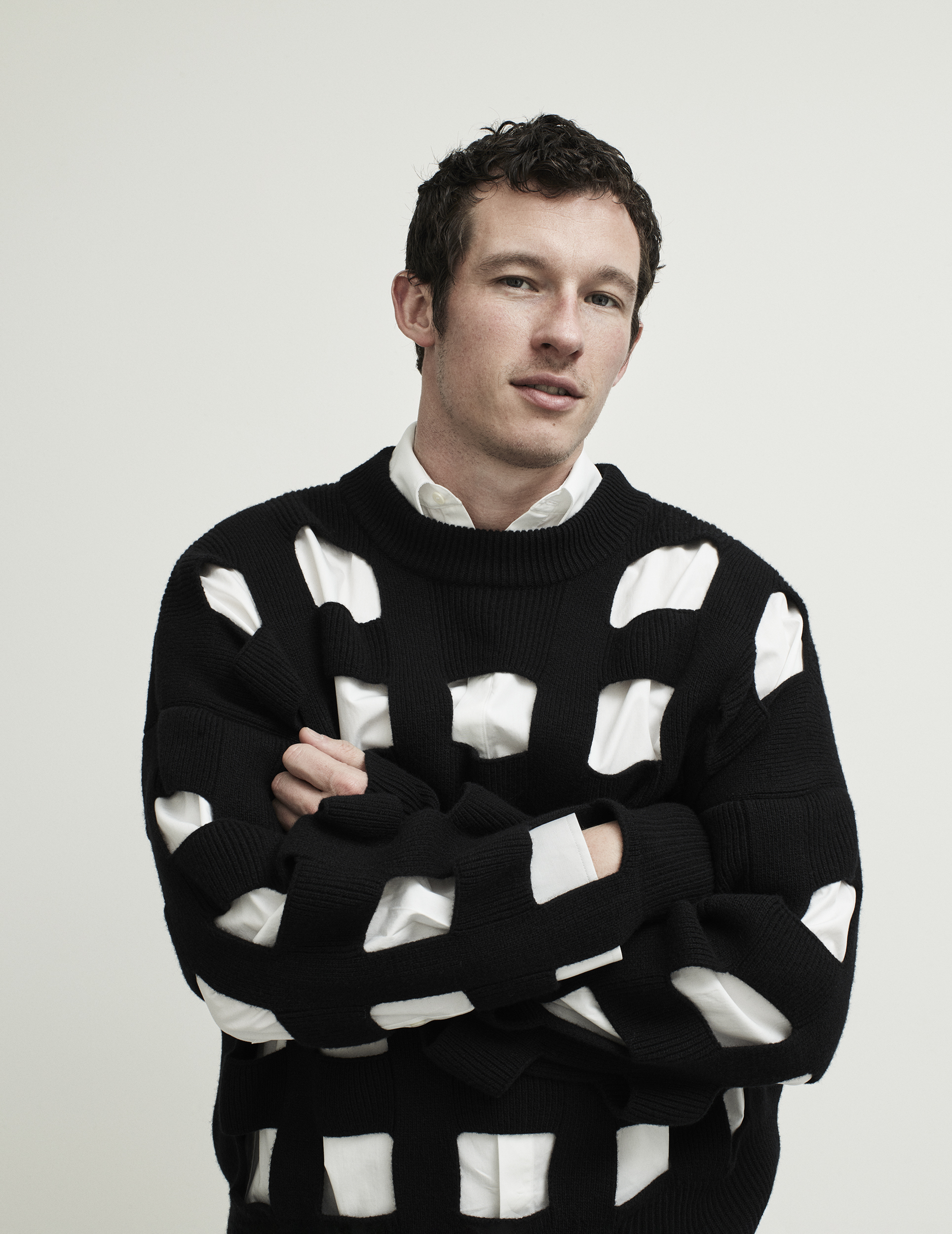Whether you celebrate Christmas or not, December 25th always delivers at least one special present: the gift of good cinema. This year, the Yuletide is serving one particularly buzzworthy film—The Boys in the Boat, starring actor Callum Turner and directed by the one and only George Clooney.
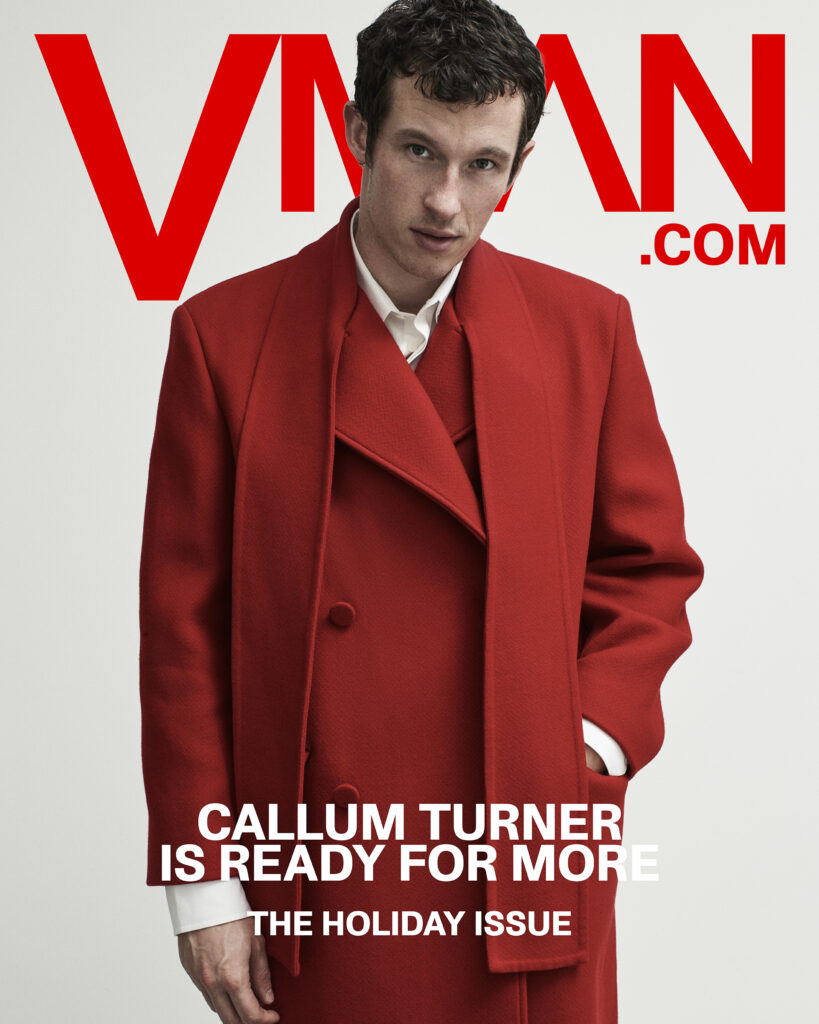
A film adaptation of author Daniel James Brown’s #1 New York Times bestselling non-fiction novel of the same name, the forthcoming release recounts the story of a University of Washington row team competing during the 1936 Olympics in Berlin, Germany. Taking place during both the Great Depression and Adolf Hitler’s nazi expansion in Europe, the epic journey takes viewers through worlds of hardship and perseverance on several levels—the individual (each athlete), the team, and even their countries, with World War II to follow only three years later.
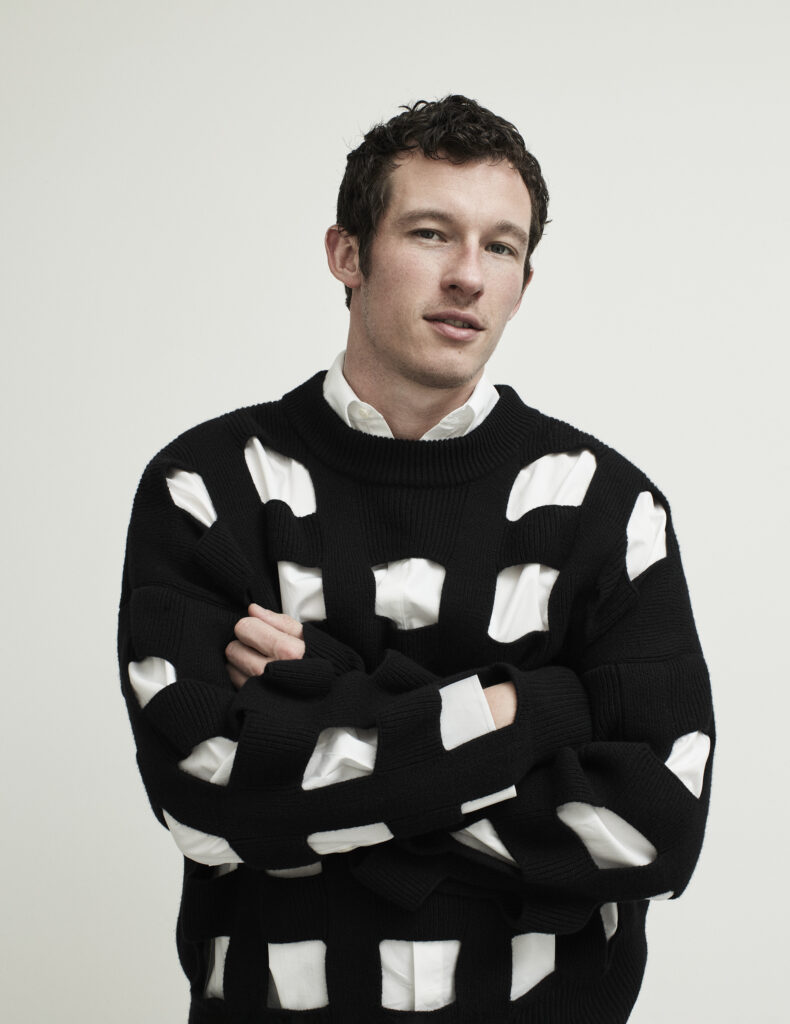
Ahead of the film’s December 25th release, VMAN.com captured and spoke with Turner, Clooney’s latest leading man, about vigorous training, being inspired by his character, and of course, working with one of Hollywood’s living legends.
VMAN: You didn’t follow a traditional academic path in order to become an actor. Can you tell us a bit about how your acting career came to be?
Callum Turner: I remember I was around nine years old when I found out I didn’t have to go to university. And even though I loved school because of the social side of things, all I wanted to do was play football. I decided that once I was 16, I was going to leave school and try to be a footballer, but it didn’t happen for me. So I got the opportunity to model. Someone in Paris, a friend of my mother’s, asked me if I wanted to go and meet these agents who had seen my photo. So I jumped at the opportunity and I loved it. I did so many wonderful things through modeling—I lived in Japan for six months and I got to work with cool people, you know, Comme des Garcons, Louis Vuitton, things like that. It was like my gap year, I guess. Living in Japan when you’re 18 years old is a remarkable thing to do. I stopped modeling when I was about 19, and I worked at Dover Street Market.
A guy I knew was a manager there, and he asked, “Do you need a job?” I said, “I do.” I really wanted a job. I didn’t want to model anymore. I had to make money. So I went and worked there for a couple of years and after probably about a year of working there, I just thought I should try to do this acting thing. So I worked at Dover Street Market for four days a week, and then the other three days I’d watch films and play, you know, three films a day, just trying to engross myself as much as possible into the world of acting and theater and film. I remember I auditioned for drama school and I was crawling around on the floor in this room with 20 other people in the audition, and I said, “I don’t think this is what I want to be doing.” Eventually, I got an agent because I’d done a short film with a student, and the rest is history.
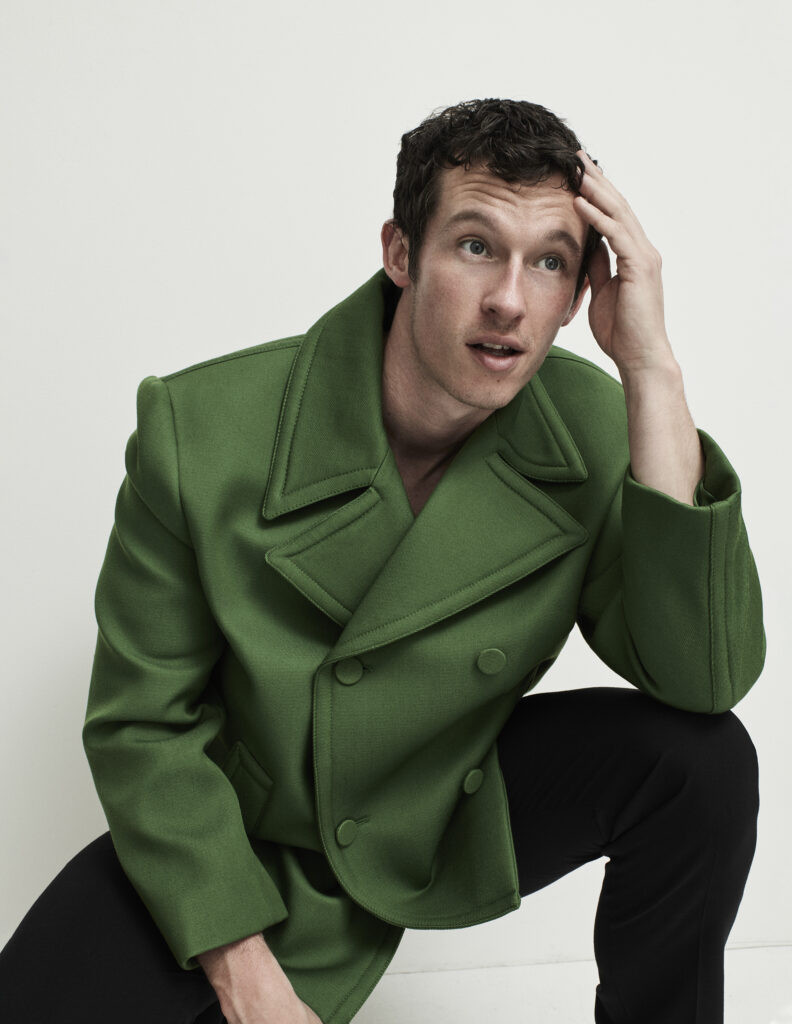
VM: Having wanted to be a professional athlete, was the sports aspect of this film what drew you in?
CT: Absolutely. I mean, sports and film are two of my favorite things. But, you know, I’m director-driven; it’s all about the director, ‘ cause they’re the boss. They choose the cinematographer, the costume designer, the spec designer…they choose everything. And George (Clooney) was someone I always wanted to work with, of course, because he’s George. You know, if he wanted to do a movie about going to the moon, I’d have jumped on that too. So the fact that it was a rowing movie or a sports movie, was a happy coincidence.

VM: The actors had to train like actual rowers for this film. Was the line often blurred between the characters learning to be a better row team and the actors themselves training for the same thing?
CT: We became a professional sports team. We had nutritionists, we had dieticians, we had physios, we had masseuses, we had the whole lot. Even the guy who trained us, Terry O’Neal, had won gold in Atlanta. We learned to roll and did it for five months, every day, and we became a team and there’s a lot of love for each other in that boat. I felt like my side hustle was the movie and my primary job was rowing. Which is, by the way, the most wonderful team sport that there is. We set a target of 46 strokes per minute, which is what the boys did in the final race. And after about three days, I realized that was a stupid idea because it’s excruciating, the sport, physically, emotionally, mentally. It really drives you crazy, because it’s so intricate and you have to be in complete unison—you have to lose your identity and become one.
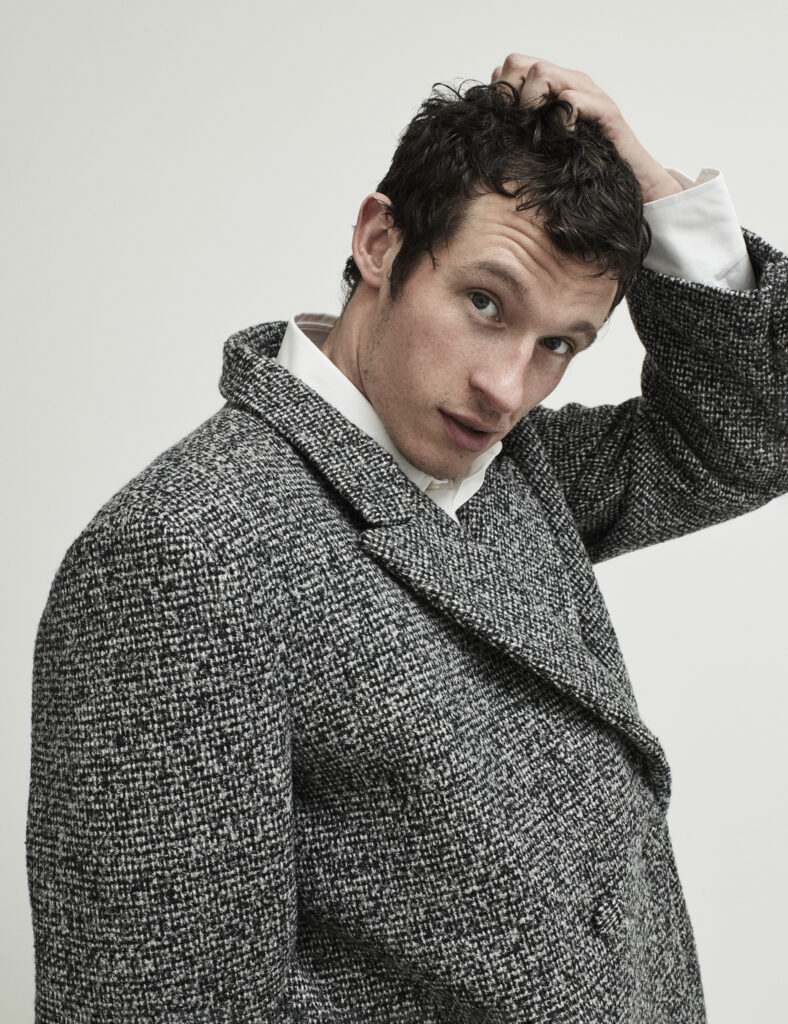
VM: How did you relate to your character Joe Rantz, who was of course a real person?
CT: Well, look, I understood being part of a team. I understood having a coach as a father figure. I grew up in Chelsea and there was a youth club down the road in Brunswick, and there was someone there named Danny who, for three years of my life, was an integral part, and was the football manager and runs the club and has done so for 30 something years. But the tragedy of Joe’s life was the thing that inspired me. The heartbreak that he had to go through and endure as a 13-year-old boy, as an eight-year-old boy, as a five-year-old…you know, when he was eight, they went to a mining town because there was no work. Then his stepmother decided she didn’t want him living in the house anymore…so from there he was cleaning dishes at eight years old and wasn’t allowed to sleep in his own house.
And then when he was 13, he was finally abandoned. His dad just left him and went to California. There was just no money. They decided he was man enough at 13 and couldn’t support him. It just broke my heart. And I was so inspired by the idea that the next day, he woke up and his parents weren’t there anymore, and he decided that he was not going to let this define him. He decided he wouldn’t let this rule his life, and he put himself through high school, through college, and then he went and won gold at the Olympics. He’s just one of the most inspiring characters I’ve ever come across and just immediately fell in love with him and wanted to know him and look after him, you know?
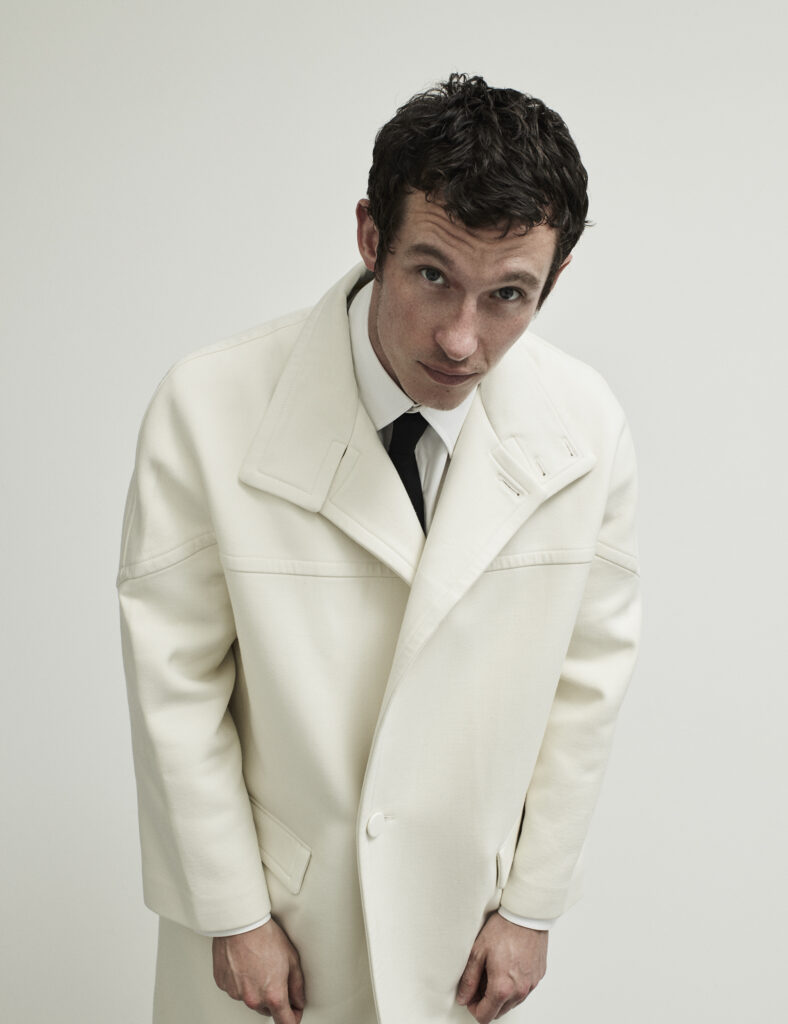
VM: Since this is a full story, can you speak to which parts Clooney wanted to focus on or highlight within the film?
CT: I think he was inspired by the story and idea that these guys had nothing and were living hand to mouth, and they were just ordinary people who did something extraordinary. And he’s such an incredible director. He taught me so many things that I’m going to take on and changed the way I think of acting, and my approach to acting. He’s just a real leader of people, you know, and everyone wants to be there for him because everyone trusts him implicitly. You want to work for him because he provides a space that is fun, enjoyable, loving, warm, and safe. He’s such a generous human being on so many levels. You know, he is such a film fan—he loves cinema so much, the history of cinema, and the business. And he’s, you know, infectious, George. He’s really more than what you think he’ll be, you know?
Photography Jason Kibbler
Fashion Direction Gro Curtis
Fashion Editor Xander Ang
Hair Jenni Wimmerstedt (Paradis)
Makeup Frankie Boyd (Streeters)
Casting Greg Krelenstein (GK-ID)
Photo Assistants Justin Mulroy, Mike Skigen, Iain Gomez
Digital Technician Kylie Coutts
Styling Assistants Liv Vitale, Natalie Cohen
Hair Assistants Vanessa Verea, Summer Key
Discover More







